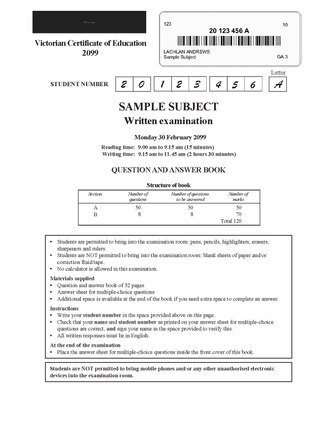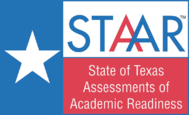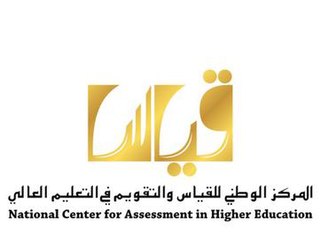Related Research Articles

Matura or its translated terms is a Latin name for the secondary school exit exam or "maturity diploma" in various European countries, including Albania, Austria, Bosnia and Herzegovina, Bulgaria, Croatia, Czech Republic, Hungary, Italy, Kosovo, Liechtenstein, Montenegro, North Macedonia, Poland, Romania, Serbia, Slovakia, Slovenia, Switzerland and Ukraine.

The Graduate Record Examinations (GRE) is a standardized test that is part of the admissions process for many graduate schools in the United States and Canada and a few other countries. The GRE is owned and administered by Educational Testing Service (ETS). The test was established in 1936 by the Carnegie Foundation for the Advancement of Teaching.

The Victorian Certificate of Education (VCE) is one credential available to secondary school students who successfully complete year 11 and 12 in the Australian state of Victoria as well as in some international schools in China, Malaysia, Philippines, Timor-Leste, and Vietnam.
Education in Vietnam is a state-run system of public and private education run by the Ministry of Education and Training. It is divided into five levels: preschool, primary school, secondary school, high school, and higher education. Formal education consists of twelve years of basic education. Basic education consists of five years of primary education, four years of secondary education, and three years of high school education. The majority of basic education students are enrolled on a daily basis. The main goals are general knowledge improvement, human resources training and talent development.
The Hong Kong Certificate of Education Examination was a standardised examination between 1974 and 2011 after most local students' five-year secondary education, conducted by the Hong Kong Examinations and Assessment Authority (HKEAA), awarding the Hong Kong Certificate of Education secondary school leaving qualification. The examination has been discontinued in 2012 and its roles are now replaced by the Hong Kong Diploma of Secondary Education as part of educational reforms in Hong Kong. It was considered equivalent to the United Kingdom's GCSE.
University admission or college admission is the process through which students enter tertiary education at universities and colleges. Systems vary widely from country to country, and sometimes from institution to institution.

The Texas Assessment of Knowledge and Skills (TAKS) was the fourth Texas state standardized test previously used in grade 3-8 and grade 9-11 to assess students' attainment of reading, writing, math, science, and social studies skills required under Texas education standards. It is developed and scored by Pearson Educational Measurement with close supervision by the Texas Education Agency. Though created before the No Child Left Behind Act was passed, it complied with the law. It replaced the previous test, called the Texas Assessment of Academic Skills (TAAS), in 2002.
The Massachusetts Comprehensive Assessment system, commonly abbreviated as MCAS, is Massachusetts's statewide standards-based assessment program developed in 1993 in response to the Massachusetts Education Reform Act of the same year. State and federal law mandates that all students who are enrolled in the tested grades and who are educated with Massachusetts public funds participate in MCAS testing.

The Nationwide Unified Examination for Admissions to General Universities and Colleges (普通高等学校招生全国统一考试), commonly abbreviated as Gaokao, is the annual national undergraduate admission exam of China, held in early June. The exam is held by provincial governments under directions from the Ministry of Education and is required for undergraduate admissions to all higher education institutions in the country. The Gaokao is taken by high school seniors at the end of their final year.

Penilaian Menengah Rendah was a Malaysian public examination targeting Malaysian adolescents and young adults between the ages of 13 and 30 years taken by all Form Three high school and college students in both government and private schools throughout the country from independence in 1957 to 2013. It was formerly known as Sijil Rendah Pelajaran. It was set and examined by the Malaysian Examinations Syndicate, an agency under the Ministry of Education.

Father Conceicao Rodrigues Institute of Technology (FCRIT) is a private engineering college affiliated to the University of Mumbai located in Vashi, Navi Mumbai. The institute offers the B.E degree courses in Computer Engineering, Electrical Engineering, Mechanical Engineering, Electronics and Telecommunication Engineering and Information Technology.
In South Africa, matriculation is the final year of high school and the qualification received on graduating from high school, and the minimum university entrance requirements. The first formal examination was conducted in South Africa under the University of the Cape of Good Hope in 1858. In general usage, the school-leaving exams, which are government-administered, are known as the "matric exams"; by extension, students in the final year of high school are known as "matriculants" or, more commonly, "matrics". Once the Matric year has been passed, students are said to have "matriculated".

The ICFESexamination, or Saber 11, is a high school exit examination administered annually in grade 11 in Colombian high schools. The exam is standardized, similar to the SAT and ACT examinations taken by high school students in the United States. The purpose of the exam is to evaluate students' aptitude in five subjects: critical reading, mathematics, social studies, science, and English. Each exam question has four multiple-choice answers, except for the English section which provides between three and eight possible answers for each question.

An examination or test is an educational assessment intended to measure a test-taker's knowledge, skill, aptitude, physical fitness, or classification in many other topics. A test may be administered verbally, on paper, on a computer, or in a predetermined area that requires a test taker to demonstrate or perform a set of skills.

The State of Texas Assessments of Academic Readiness, commonly referred to as its acronym STAAR, is a series of standardized tests used in Texas public primary and secondary schools to assess a student's achievements and knowledge learned in the grade level. It tests curriculum taught from the Texas Essential Knowledge and Skills, which in turn is taught by public schools. The test used to be developed by Pearson Education every school year, although the most recent contract gave Educational Testing Service a role in creating some of the tests, under the close supervision of the Texas Education Agency.

Measurement is derived from the verb 'to measure' which means to assess something; in Arabic 'yaqees' 'measure' has the meaning of comparing something to something else. In this sense, measurement is a daily practice that manifests itself in all our assessment activities, whether we assess concrete things in terms of size and color, or abstract things such as human relations. The ultimate goal of 'measuring' something is to assess ourselves in comparison to everything else in the world.
Health Education Systems Incorporated (HESI) is a United States company that provides exams and other study material to help prepare nursing and allied health students for their professional licensure exams. Schools often use HESI exams to help predict the student's likelihood of success in tests such as the NCLEX-RN.

The National Programme on Technology Enhanced Learning(NPTEL) is an Indian e-learning platform for university-level science, technology, engineering, and mathematics (STEM) subjects. NPTEL is the largest e-repository in the world of courses in engineering, basic sciences and selected humanities and management subjects. The platform and materials have been jointly developed by Indian Institutes of Technology (IITs) and Indian Institute of Science. The initiative is funded by the central Ministry of Education. The project's central idea is to put recorded lectures taught by its member institutes online for open access. It operates an educational YouTube channel covering engineering, basic sciences, and some humanities and social science subjects. Popular NPTEL courses are being translated into popular local languages. The local languages which the translation are available in include Assamese, Bengali, Gujarati, Hindi, Kannada, Malayalam, Marathi, Odia, Punjabi, Tamil and Telugu.

Presidential School in Namangan is a school in Namangan, Uzbekistan. It is one of the first schools founded by the country's president under the Agency for Presidential Educational Institutions. Presidential School is a co-ed, public, residential school enrolling 168 students in grades 5 through 11. Established in December 2019, it graduated its first senior class in the summer of 2021. The school is currently a member of the Council of International Schools (CIS). Additionally, the school received a Cambridge accreditation and this allows Presidential School in Namangan to conduct official Cambridge examinations. Admission is based on merit only, and the school covers each student's full cost of attendance. Only residents of the Namangan region are eligible to apply.
References
- ↑ McGraw-Hill's Nursing School Entrance Exams By Thomas A. Evangelist, Tamra Orr, Judy Unrein
- ↑ "The ATI TEAS Online Remote Proctored Exam". Assessment Technologies Institute. Archived from the original on January 23, 2022. Retrieved February 9, 2022.
- ↑ Dunn, Deborah (April 21, 2010). "Academic and Non-Academic Factors as Predictors of Early Academic Success in Bacclaureate Nursing Programs". ResearchGate. Retrieved March 4, 2022.
- 1 2 3 4 "ATI TEAS Version 7 Exam". Assessment Technologies Institute. Archived from the original on May 13, 2022. Retrieved May 13, 2022.
- ↑ "Complete TEAS Test Overview [Everything You Need to Know]". www.test-guide.com. 18 July 2023. Retrieved 24 July 2023.
- ↑ "ATI TEAS, Version 7 Content Outline" (PDF). www.mcfattertechnicalcollege.edu/. July 2022. p. 8. Retrieved 9 Jan 2023.
{{cite web}}: CS1 maint: date and year (link)